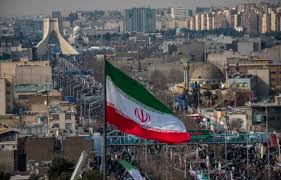Madagascar’s military on Tuesday seized control of the government after President Andry Rajoelina was impeached by lawmakers and fled the country, following weeks of mass youth-led protests over corruption, power outages, and economic hardship.
Army commander Colonel Michael Randrianirina, who led a recent mutiny, announced on national radio that the military had taken power, suspended most state institutions, and would oversee a two-year transitional period leading to new elections.
“We have taken power. The people have spoken. Our duty is to restore order, integrity, and the rule of law,” Randrianirina declared from the capital, Antananarivo.
The colonel, who heads the elite CAPSAT unit that played a decisive role in Rajoelina’s 2009 coup, said the military would govern alongside a civilian-led transitional administration.
A statement released by the new junta said that several institutions — including the Senate, High Constitutional Court, Independent National Electoral Commission, and High Court of Justice — had been suspended.
Only the National Assembly remains operational to “represent the voice of the people,” the statement read.
The whereabouts of 51-year-old President Andry Rajoelina remain unknown.
Diplomatic and military sources told Reuters that he fled Madagascar on Sunday aboard a French military aircraft, after his own security forces began to defect.
Rajoelina, who had refused to resign despite mounting demonstrations, condemned the military takeover in a recorded statement, calling it a “betrayal of the constitution.”
His isolation deepened when lawmakers from his own ruling coalition voted to impeach him on charges of corruption and abuse of office. Hours earlier, Rajoelina had attempted — unsuccessfully — to dissolve the legislature by decree in a final bid to cling to power.
The crisis follows three weeks of nationwide protests that began on September 25, triggered by severe power and water shortages but rapidly morphing into a broader anti-government movement.
Led largely by Gen Z activists, the demonstrations drew tens of thousands to Antananarivo’s Independence Avenue, waving Malagasy flags and banners calling Rajoelina a “French puppet” — a jab at his dual French citizenship and close ties to Paris.
Crowds also brandished the skull-and-crossbones flag popularized by the Japanese anime One Piece, which has become a symbol of youthful defiance in recent global protests.
“We are happy Rajoelina is finally gone. This is a new beginning,” said Fih Nomensanahary, a high-school student celebrating with friends in the capital.
“The army must hand over to civilians quickly. We don’t want another long military rule,” warned Rezafy Lova, a 68-year-old IT consultant.
Over the weekend, CAPSAT troops declared they would refuse to fire on protesters. Soon after, the unit took control of the armed forces, appointing a new army chief.
By Monday, both the gendarmerie and national police had joined the mutiny — isolating Rajoelina and paving the way for the military to step in.
Analysts say the takeover marks a stunning reversal for Rajoelina, who himself rose to power in a 2009 military-backed coup before winning elections in 2018 and 2023.
“This is history repeating itself,” said Jean-Paul Ravelomanana, a political scientist at the University of Antananarivo. “The military once again positions itself as the arbiter of Madagascar’s politics — but this time, the pressure has come from below, from a restless youth.”
Madagascar, home to over 30 million people — most under the age of 20 — is one of the world’s poorest nations.
According to the World Bank, nearly 75% of citizens live below the poverty line, and GDP per capita has fallen by 45% since independence in 1960.
Rolling blackouts, rising food prices, and chronic unemployment have fueled deep public resentment.
“The protests are about dignity and opportunity,” said Noro Andrianina, a youth activist. “We are tired of empty promises.”
Regional and international bodies reacted swiftly to the news of the coup.
The African Union (AU) and Southern African Development Community (SADC) both condemned the military takeover and called for “a swift return to constitutional order.”
France, Madagascar’s former colonial power, urged restraint and said it was monitoring the situation closely.
The United Nations called for calm, warning that instability could worsen humanitarian conditions in the island nation already suffering from drought and food insecurity.
Colonel Randrianirina said the transitional government’s priorities would include restoring security, stabilizing the economy, and preparing credible elections within two years.
However, civil society groups and foreign diplomats have urged the junta to shorten the timeline and hand power to civilians immediately.
“Madagascar has been through too many cycles of coups and crises,” said Dr. Lalao Raharison, a human rights lawyer in Antananarivo. “The people want real reform — not another chapter of military rule.”



